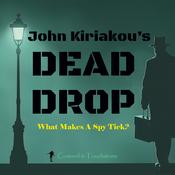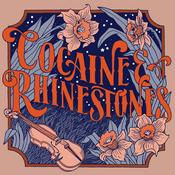60 episodes
- Demanding a perfect victim to justify outrage when law enforcement kills someone is a trap we don't have to step into.
Subscribe to Andrea Pitzer's Degenerate Art newsletter to support Next Comes What and get Andrea's posts first: https://degenerateart.beehiiv.com/subscribe
Read the post that inspired this episode: https://degenerateart.beehiiv.com/p/the-innocence-trap
Watch
YouTube: https://youtu.be/-z3OVVkJBXM
TikTok: https://www.tiktok.com/@degenerateartnews
This week, Andrea Pitzer considers four recent killings by law enforcement officers responsible for apprehending or detaining immigrants. She goes through the huge outpouring of sympathy after the shootings of Renee Good and Alex Pretti in Minneapolis, and notes the public tributes to them nationwide. The New Year's Eve killing of Keith Porter Jr., a Black man, drew outrage in Los Angeles, but did not get as much attention across the country for reasons that Andrea ponders. She then considers the ways the deaths of those seen as "good people" can galvanize Americans against state violence, but also run the risk of stepping into a trap.
The case of the death at Camp East Montana in Texas of Geraldo Lunas Campos, who had served sentences for criminal conduct in the past, including sexual contact with a minor, is more uncomfortable to consider. But Andrea argues that his offenses don't justify the building of a vast system of concentration camps, his being swept into them years after serving his time, or his being killed by guards in detention. And she warns that he is just as much of a canary in a coal mine for the risks faced by all Americans, documented or not, if we allow agents of the government to execute people with impunity. The longterm law enforcement violence that has been cheered on from both sides of the aisle has set the stage for where we are at now, and is an issue we will have to address as a country before we can truly be safe from the nightmare that ICE and Border Patrol are inflicting on the country today. The episode closes with what you can do to deal with this government violence and immigrant detention operations that are still taking place nationwide. - The correct response to Dachau was not better training for the guards. We can end the current nightmare.
Subscribe to Andrea Pitzer's Degenerate Art newsletter to support Next Comes What and get Andrea's posts first: https://degenerateart.beehiiv.com/subscribe
Read the post that inspired this episode: https://degenerateart.beehiiv.com/p/into-the-abyss
Watch this episode
YouTube: https://youtu.be/L49CCANEbVI
TikTok: https://www.tiktok.com/@degenerateartnews
This week's episode discusses how societies come to concentration camps, and the ways ICE is helping the US to solidify into a concentration-camp regime. Andrea Pitzer discusses the rapidly rising numbers of those detained in immigration detention--some 66,000 at the end of 2025--with the agency's already stated eventual goal of arresting millions. She looks at the kidnappings, deliberate blindings, the murders of detainees in Texas and of random people out on the streets, and the general terror currently unleashed on cities led by politicians opposed to Trump. Andrea explains how concentration camps aid the rise of police states, and the ways terror becomes entrenched into bureaucracy. We are already deep in that process, and this year is critical.
We must stop the calcification of the detention-camp system before we lose the ability to fight back. The US is currently holding more than three times as many people in immigration detention as the Nazis held in their concentration camp system in the spring of 1939, more than six years into the Third Reich. This situation has come to pass, Andrea argues, because of long-standing deep weaknesses in our system that have enforced second-class citizenship for millions at each stage of American history, allowing politicians to manipulate public fears for their own gain. But we also have a heritage of extraordinary resistance from everyday people, and Andrea outlines ways that everyone can help shut down the authoritarianism that is already here and getting worse. - The US government is attacking its own people (and others), but you don't have to spend your life feeling helpless or marinating in fear and fury.
Subscribe to Andrea Pitzer's Degenerate Art newsletter to support Next Comes What and get Andrea's posts first: https://degenerateart.beehiiv.com/subscribe
Read the post that inspired this episode: https://degenerateart.beehiiv.com/p/what-just-happened-7ad4
Watch this episode
YouTube: https://youtu.be/mSClVKYVFlU
TikTok: https://www.tiktok.com/@degenerateartnews/video/7596153371589987598?is_from_webapp=1&sender_device=pc
This week's episode covers the gravity of the moment in the US, the curse of glib centrist pundits, and how to come together in useful ways to fight the abuses the federal government is inflicting on civilians daily. Andrea Pitzer considers recent violence, particularly the murder of Renee Good, and looks at the ways we absorb current events and how we talk to one another and why they matter. Referencing the tendency to snipe at others who have similar views, Andrea addresses that the upside is that we do want to connect and change the current landscape. But the downside is that we often just go online to tear into or demotivate one other. Meanwhile, many pundits exist in some other universe entirely, where nothing changes or nothing matters.
Dissecting a clip of David Brooks on the PBS NewsHour, Andrea outlines how his comparison of the conflict between ICE and unarmed civilians to an Ivy League football game reveals centrist pundit preoccupations and uselessness. They want to preserve a status quo in which there are two morally equivalent sides, while they get to referee. Yet the work of demonstrators and the brave people standing up to ICE across the country (especially in Minneapolis right now) are making a difference. US public opinion on ICE is shifting quickly and dramatically, which will help motivate politicians who haven't yet found a voice to protect the American people in the short run—and in the long run offers an opening to shatter the agencies that are methodically brutalizing the country. Andrea closes with an idea of how we might bring our voices together more powerfully going forward. - Donald Trump is just a symptom of our national disease. We have to--and we can--change the system that coughed him up.
Subscribe to Andrea Pitzer's Degenerate Art newsletter to support Next Comes What and get Andrea's posts first: https://degenerateart.beehiiv.com/subscribe
Read the post that inspired this episode: https://degenerateart.beehiiv.com/p/the-century-long-year
Watch this episode: https://youtu.be/Mc_NuxKJ1AM
TikTok: https://www.tiktok.com/@degenerateartnews
This week, Andrea Pitzer focuses on the U.S. attack on Venezuela, looking at what we know, how recent events fit into history, and why it's important to stop Trump. But she also dives into why the president is just a symptom of what ails the country. The episode speed-runs the last two centuries of U.S. policy in the Americas, and the long history of intervention. Andrea shows how Trump's administration is mired in the rhetoric and fixations of the last century, with control over oil and anti-Communist obsessions determining how his advisors respond to almost every situation.
More importantly, she talks about Trump as merely the vessel of the real dysfunction afflicting the U.S. This illness could have wormed its way into the Democratic Party instead of the Republican Party, building a propaganda machine and bringing some virulent, billionaire-backed populism to power in some other form. But it didn't, and we are where we are. Which means we have to fight the Republicans' assault on democracy while simultaneously building a new kind of national governance that rejects the rot at the core of the current system. Andrea quotes her former editor Laura Helmuth arguing that we need to "move slow and build things." The episode closes by referencing a handful of the evidence-based policies that would transform everyday Americans' lives, and encourages listeners to work for one long-term change that matters to them. - The tactics Trump allies are using to gin up hate against trans people reveal how propaganda works and why it's so dangerous.
Subscribe to Andrea Pitzer's Degenerate Art newsletter to support Next Comes What and get Andrea's posts first: https://degenerateart.beehiiv.com/subscribe
Read the post that inspired this episode: https://degenerateart.beehiiv.com/p/you-re-soaking-in-it
TikTok: https://www.tiktok.com/@degenerateartnews
In this week's episode, In this last episode for 2025, Andrea Pitzer reviews recent actions by the US and state governments targeting trans women and trans youth, showing how propaganda takes root and becomes effective over time. She considers the recent announcement by RFK Jr., the US Secretary of Health and Human Services, and the government's direct targeting of medical care for trans kids. Bizarre bathroom measures taken in Texas also get a mention, and show how politicians use these measures to garner political power for themselves. Turning to the UK, Andrea explores how quickly propaganda can shift a country's baseline acceptance for rights of minority groups when staff at key news outlets actively embrace exclusion. Considering how the recent shift in the US toward transphobia is being generated--especially the wave of anti-trans legislation--Andrea discusses evangelical Christianity's strong tradition of policing gender roles. From women's rights to the acceptance of gays and lesbians in the US, she shows how the expansion of rights is being strategically undone today.
Rep. Sarah McBride's informal speech on the Capitol states last week about being trans, as well as her prior public statements, offer useful ways to think about sidestepping the kind of back-and-forth that's unlikely to be productive in addressing transphobia. Andrea considers the value and shortcomings of shitposting in offering solidarity and changing hearts and minds. She closes with a look on how to find the most effective means to help close to home, where propaganda is weakest and easiest to undo.
More History podcasts
Trending History podcasts
About Next Comes What
Author Andrea Pitzer reveals what we can learn from the rise of strongmen around the world to thwart Trump and his allies.
Podcast websiteListen to Next Comes What, The Rest Is History and many other podcasts from around the world with the radio.net app

Get the free radio.net app
- Stations and podcasts to bookmark
- Stream via Wi-Fi or Bluetooth
- Supports Carplay & Android Auto
- Many other app features
Get the free radio.net app
- Stations and podcasts to bookmark
- Stream via Wi-Fi or Bluetooth
- Supports Carplay & Android Auto
- Many other app features


Next Comes What
Scan code,
download the app,
start listening.
download the app,
start listening.







































